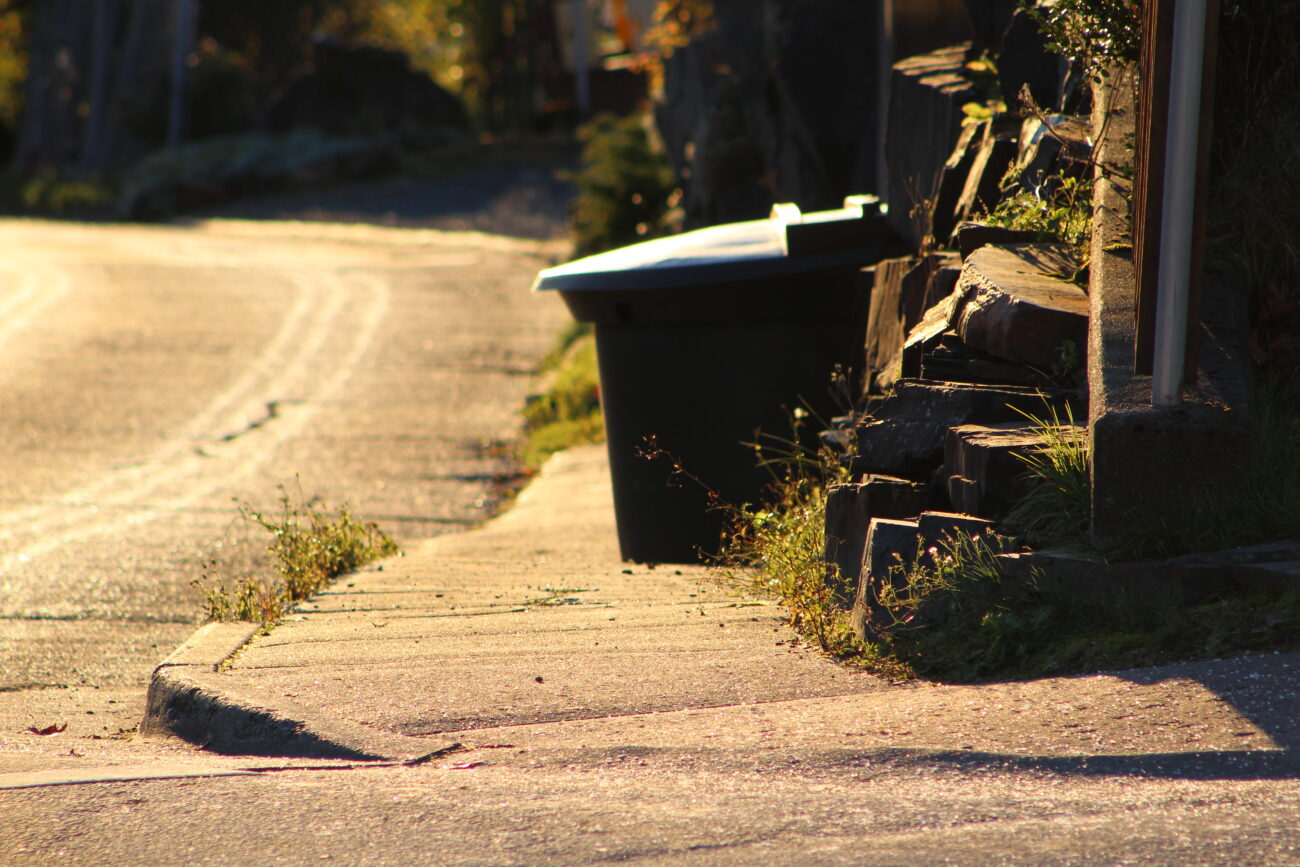
Tens of thousands of unionized port and rail workers on the West Coast are in months-long negotiations with shipping and rail companies. Potential strikes at the Port of Seattle or along the nation’s railways could cripple economic activity throughout the country. A strike could also potentially cause Wrangell’s trash bins to overflow.
Southeast Alaska is a patchwork of rocky, forested islands, so there are only so many places to take out the trash. Most communities in the panhandle operate some combination of landfill service and barging baled trash down south.
But Public Works Director Tom Wetor explains that Wrangell doesn’t have that flexibility.
“Where Wrangell is in a worse spot than some of our other communities is: most of our other communities still operate some sort of a landfill, and so they’re going to be able to subsidize their trash storage and shipping by putting a few more things in their landfill,” Wetor explains. “We don’t have that option.”
Wrangell’s landfill was closed in 2012, and the community hasn’t opened another. That leaves the island with very little wiggle room when it comes to waste.
Most of the time, that isn’t an issue. Barge service to Wrangell is regular and prompt, and the sanitation department keeps the trash baler moving.
From Wrangell, shipping containers of trash travel by barge to the Port of Seattle where they’re unloaded and shipped by rail to a landfill in central Washington, the Roosevelt Regional Landfill.
In recent months, though, two major union negotiations have stalled or fallen apart.
One is between railroads and a dozen rail workers’ unions throughout the country. Disagreements over sick day policies and long work hours have caused two of the unions to reject a tentative agreement set to expire in the middle of November.
Wetor says if the rail companies and unions aren’t able to come to an agreement, it could be “not great” for Wrangell.
“What management will look like if they no longer are able to ship by rail to the Roosevelt Landfill, that gets a little complicated and is not, I would say, not a long-term sustainable plan,” Wetor adds.
Wetor says he’s been in contact with Republic Services, the company that ships Wrangell’s garbage down south.
If it comes to a strike?
“Basically, what has been communicated to us is that they will ship every single empty available container that they can north and that communities are going to have to do their best at trying to stockpile the garbage as much as possible,” Wetor relates. “That should give us a few days.”
“If negotiations or a strike lasted more than a few days,” he continues, “Roosevelt has already been in contact with a number of other landfills in the Pacific Northwest, and they would consider shipping the garbage by truck to these other landfills.”
The other stalled union negotiation is between shipping companies and West Coast dockworkers represented by the International Longshore and Warehouse Union, encompassing 29 ports up and down the coast and more than 22,000 dockworkers.
The Seattle Times reports one major sticking point of the negotiations is potential automation of port facilities. The ILWU says it could cost its members jobs, while the facilities representation says it would allow more cargo and increase employment at the ports.
Either potential strike could have a serious impact on Wrangell’s garbage.
The speed Wrangell accumulates trash depends on the season, Wetor says. In the summer, the 2,100-person community can fill a container every two to three days. In the wintertime, it’s more like a week. Taking the average, with the storage capabilities the sanitation department currently has: “We’re talking probably 10 days. And that’s kind of best case scenario,” Wetor says.
Wetor says Republic has indicated it would take on any increased shipping costs as a result of a union negotiation holdup.
He says Wrangell’s Public Works Department will be monitoring the collective bargaining process of the port and rail unions.
“We’re going to keep a close eye on it in the next couple of weeks,” Wetor says, “And if this appears to be imminent, we’re going to try to order every container that we can to try to get us as far as we can, in hopes that Republic figures out at least some sort of over the road shipping option to get us through.”
Republic didn’t respond to a request for comment Tuesday.
Because of the potentially devastating impacts of a port or rail strike, President Joe Biden could also invoke a federal law known as the Taft-Hartley Act, which can supersede union negotiations for an 80-day cooldown period.
For Wrangell, if it does come to a strike, there won’t be a moment to waste.
Get in touch with KSTK at news@kstk.org or (907) 874-2345.












